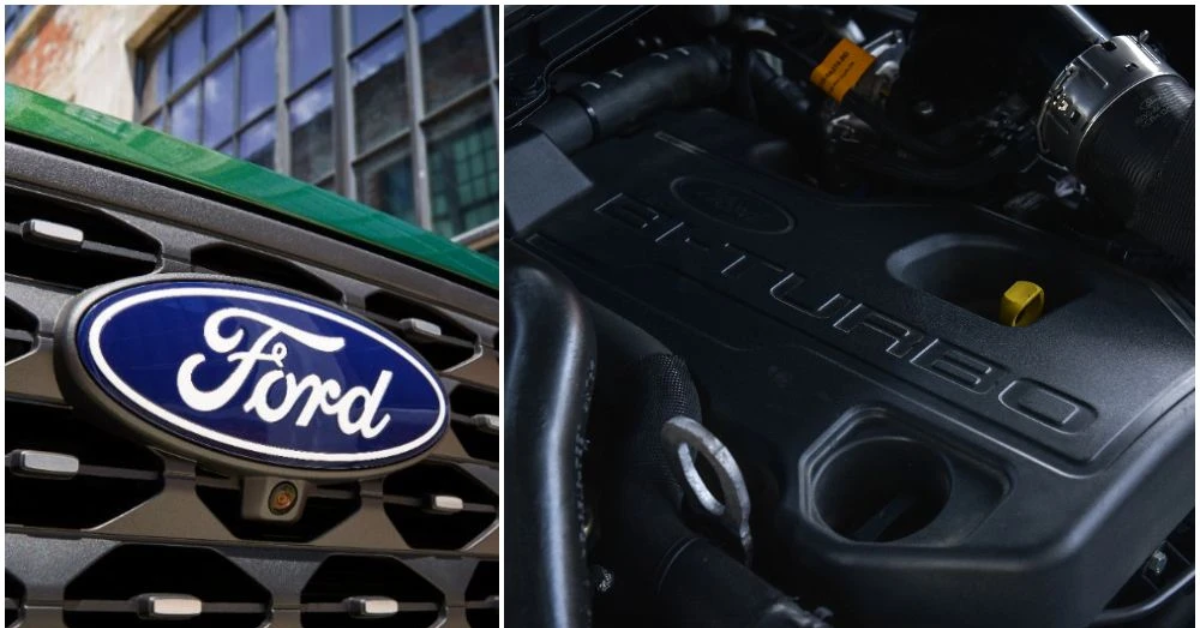In a major development for India’s automotive manufacturing ecosystem, Ford Motor Company has announced a fresh investment of ₹3,250 crore into its Chennai plant. This decision marks an important milestone in Ford’s renewed strategy for India after the company ceased local vehicle sales in 2021. The investment will enable the plant to produce all-new next-generation internal combustion engines, which will be exported to global markets starting 2029.
Ford’s decision signifies renewed confidence in India’s manufacturing capabilities and highlights the country’s strategic importance in global automotive supply chains. Let’s explore the full details of what this investment means for Ford, for the Indian automotive sector, and for workers in Tamil Nadu.
✅ A Major Boost: Ford’s Manufacturing Revival in India
When Ford shut down its manufacturing operations in India in 2021, the move led to uncertainty among workers and auto industry observers. However, the Chennai plant remained a strategic asset due to its size, technology infrastructure, and export capabilities.
The ₹3,250 crore investment is aimed at:
- Reviving the existing production infrastructure
- Modernizing the facility for next-gen engine manufacturing
- Enhancing export operations
- Creating direct and indirect employment opportunities
This marks Ford’s re-entry into India’s manufacturing landscape with a focus on exports, even though it is not resuming domestic vehicle sales yet.
✅ Why Chennai? Strategic & Technical Advantages
Ford’s Chennai plant, located in Maraimalai Nagar, has historically been a global export hub. The plant previously produced engines and vehicles for over 35 countries.
Key advantages of the Chennai facility include:
🔹 Skilled Workforce
The region has a large pool of experienced automotive engineers and technicians.
🔹 Strong Supplier Network
Tamil Nadu is home to one of India’s strongest automotive component ecosystems.
🔹 Excellent Port Connectivity
The plant’s proximity to Chennai and Ennore ports helps streamline exports.
🔹 Existing Infrastructure
The facility has modern assembly lines, engine testing facilities, and R&D support systems.
These factors make Chennai the ideal location for Ford’s future global engine program.
✅ Next-Gen Engines: What Ford Plans to Build From 2029
Ford has not yet revealed full details of the engines, but early information suggests a new family of high-efficiency, low-emission internal combustion engines.
Expected Characteristics:
- Lower emissions to meet global regulations
- Optimized fuel efficiency
- Advanced combustion technology
- Compatibility with hybrid systems
- Modular architecture for multiple platforms
Given the global transition toward carbon neutrality, Ford may be focusing on hybrid-ready engines that can power both traditional and electrified vehicles.
Production Start
Ford aims to begin manufacturing these engines in 2029, after completing plant upgrades, trials, and regulatory certifications.
✅ Job Creation & Economic Impact
Ford’s investment is expected to generate significant employment opportunities in Tamil Nadu.
✅ Direct Jobs
Engine production will require skilled labor for:
- Assembly
- Testing
- Quality control
- Maintenance
- Engineering support
✅ Indirect Jobs
Demand will increase for:
- Tier-1 and Tier-2 suppliers
- Logistics and transport providers
- Industrial service companies
- Contract manufacturing partners
Local vendors and ancillary industries in Chennai, Oragadam, Chengalpattu, and nearby regions will benefit.
✅ Government Support: Why This Investment Became Possible
The Tamil Nadu government has played a key role in encouraging Ford’s reinvestment. After the plant’s closure, the state was actively searching for potential buyers. Meanwhile, Ford continued discussions with the government regarding:
- Policy incentives
- Flexible labor support
- Production-linked incentives
- Long-term infrastructure benefits
The final investment announcement shows that both parties have reached agreements beneficial for industrial growth, exports, and job revival.
✅ Ford’s India Strategy: A Shift from Sales to Global Manufacturing
Ford may no longer sell cars in India, but the company recognizes the nation’s value as a global production center.
✅ Why Ford is Focused on Exports
- Lower manufacturing costs
- High-quality workforce
- Strong supplier base
- Access to global shipping routes
- Government incentives for export manufacturing
✅ Could Ford Return to Selling Cars in India?
Currently, there is no confirmation. However, a re-entry cannot be ruled out. Ford has kept its sales company registered in India, continues its service operations, and retains brand infrastructure.
The manufacturing revival could be a strategic step for future opportunities.
✅ Chennai Plant Modernization: Upgrades Underway
To prepare the plant for next-gen engine production, Ford will undertake major modernization work.
Upgrades May Include:
- Advanced assembly robotics
- Automated quality inspection systems
- Precision machining tools
- Emission testing laboratories
- Smart manufacturing digitalization
- Worker upskilling programs
The plant is expected to adopt Industry 4.0 standards, making it one of Ford’s most advanced global engine manufacturing hubs.
✅ Impact on India’s Automotive Ecosystem
Ford’s investment comes at a time when global automakers are evaluating India as a key export hub.
✅ Strengthens India’s Position as a Manufacturing Leader
This investment enhances India’s global automotive credibility.
✅ Encourages More Foreign Investment
Other brands may follow Ford’s path and expand manufacturing operations.
✅ Supports India’s Make-in-India Vision
Export-focused production aligns with the government’s push for global manufacturing leadership.
✅ Boost to Component Manufacturers
Engine production will significantly increase demand for local components.
✅ The Long-Term Significance of the 2029 Timeline
Choosing 2029 for the start of production is a strategic move.
Reasons Behind the Timeline:
- Multiple years needed for plant upgrades
- Time required for global engine development
- Regulatory approvals for exports
- Supplier ecosystem setup
- Training and skill enhancement for workers
Ford is planning a long-term, stable manufacturing program rather than a quick turnaround.
✅ What This Means for Indian Consumers
Even though Ford is not resuming sales, Indian consumers still benefit indirectly.
✅ Service Support Continues
Ford’s presence ensures strengthened long-term support for existing Ford owners.
✅ Possibility of Future Product Launches
A stable manufacturing footprint could make a future comeback easier.
✅ Stronger Automotive Job Market
More employment in the industry boosts overall economic growth.
✅ Final Thoughts
Ford’s announcement of a ₹3,250 crore investment into its Chennai plant marks a major turning point for the company’s India operations. By focusing on next-generation engine production for global export, Ford reaffirms its confidence in India’s manufacturing potential and skilled workforce.
Starting from 2029, the Chennai plant will play a crucial role in Ford’s worldwide supply chain, supporting better efficiency and innovation. For India, this investment brings jobs, global recognition, and a renewed industrial boost for Tamil Nadu.
Ford’s strategic pivot toward export-oriented manufacturing shows that even after exiting the Indian retail market, the company sees India as a long-term partner in its global automotive journey.

